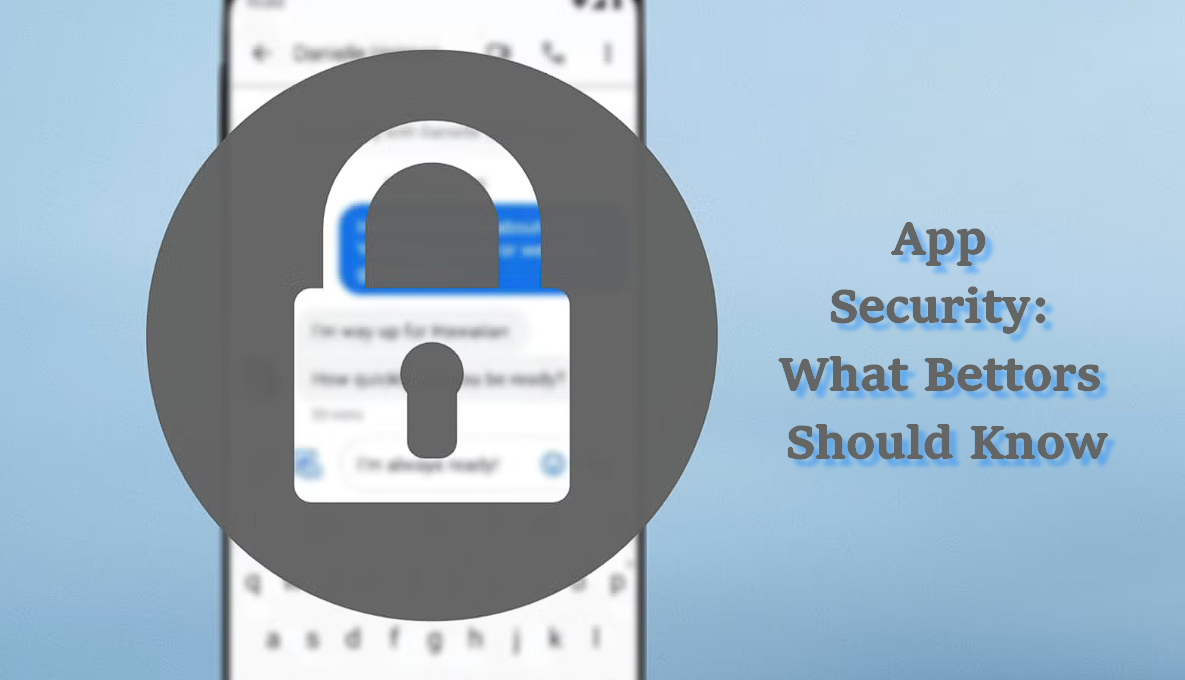In the digital age, betting apps have become increasingly popular among bettors, offering convenience and accessibility. However, with the rise of mobile betting comes the need for robust app security. Bettors must be aware of the potential risks and take steps to protect their personal and financial information. This comprehensive guide will delve into the essential aspects of app security that every bettor should know.
Understanding App Security
What is App Security?
App security refers to the measures and practices implemented to protect mobile applications and their users from various threats. For betting apps, security is paramount due to the sensitive nature of the information handled, including personal details, financial data, and betting history.
Why is App Security Important for Bettors?
- Protection of Personal Information: Betting apps often require users to provide personal information, such as names, addresses, and contact details. Ensuring the security of this data is crucial to prevent identity theft and fraud.
- Safeguarding Financial Data: Betting involves financial transactions, including deposits and withdrawals. Robust security measures protect users’ financial information from unauthorized access and theft.
- Maintaining Trust and Integrity: A secure betting app builds trust with users, ensuring that their bets are fair and that the app operates with integrity.
Common Security Threats
Data Breaches
Data breaches occur when unauthorized individuals gain access to sensitive information. For betting apps, this can include:
- Personal Information: Names, addresses, and contact details.
- Financial Data: Credit card numbers, bank account details, and transaction history.
- Betting History: Records of bets placed, wins, and losses.
Malware and Viruses
Malware and viruses can infiltrate betting apps, compromising user data and disrupting app functionality. Common types of malware include:
- Trojans: Malicious software that disguises itself as legitimate apps to steal data.
- Ransomware: Malware that encrypts user data and demands payment for its release.
- Spyware: Software that secretly monitors and records user activities.
Phishing Attacks
Phishing attacks trick users into providing sensitive information by posing as legitimate entities. In the context of betting apps, phishing can occur through:
- Fake Emails: Emails that appear to be from the betting app provider but are designed to steal user credentials.
- Malicious Links: Links that redirect users to fake websites where they are prompted to enter personal information.

Essential Security Features for Betting Apps
Encryption
Encryption is a critical security feature that converts data into a code to prevent unauthorized access. Betting apps should use:
- End-to-End Encryption: Ensures that data is encrypted from the point of origin to the point of reception.
- SSL/TLS Encryption: Secures data transmission between the app and the server.
Multi-Factor Authentication
Multi-factor authentication (MFA) adds an extra layer of security by requiring users to provide two or more forms of identification. Common MFA methods include:
- SMS Verification: Sending a verification code to the user’s mobile phone.
- Biometric Authentication: Using fingerprints or facial recognition to verify identity.
- Email Verification: Sending a verification link or code to the user’s email address.
Regular Security Updates
Betting apps should receive regular security updates to address vulnerabilities and protect against emerging threats. Users should:
- Enable Automatic Updates: Ensure that the app is always running the latest version.
- Follow Security Alerts: Stay informed about security patches and updates from the app provider.
Best Practices for Bettors
Choosing a Secure Betting App
- Reputable Providers: Opt for betting apps from reputable providers with a proven track record of security.
- User Reviews: Read user reviews and ratings to gauge the app’s security and reliability.
- Security Certifications: Look for apps that have been certified by recognized security organizations.
Protecting Personal Information
- Strong Passwords: Use strong, unique passwords for your betting app accounts.
- Avoid Public Wi-Fi: Do not access your betting app on public Wi-Fi networks, as they can be easily hacked.
- Limit Personal Data: Provide only the necessary personal information required by the app.
Monitoring Financial Transactions
- Regular Checks: Regularly check your account statements for any unauthorized transactions.
- Set Alerts: Enable transaction alerts to receive notifications for any suspicious activity.
- Use Secure Payment Methods: Opt for secure payment methods, such as e-wallets or encrypted payment gateways.
Conclusion
App security is a critical consideration for bettors using mobile betting apps. By understanding the common threats, essential security features, and best practices, bettors can protect their personal and financial information and enjoy a safe and secure betting experience. Always choose reputable betting apps, enable security features, and stay vigilant to safeguard your data.
